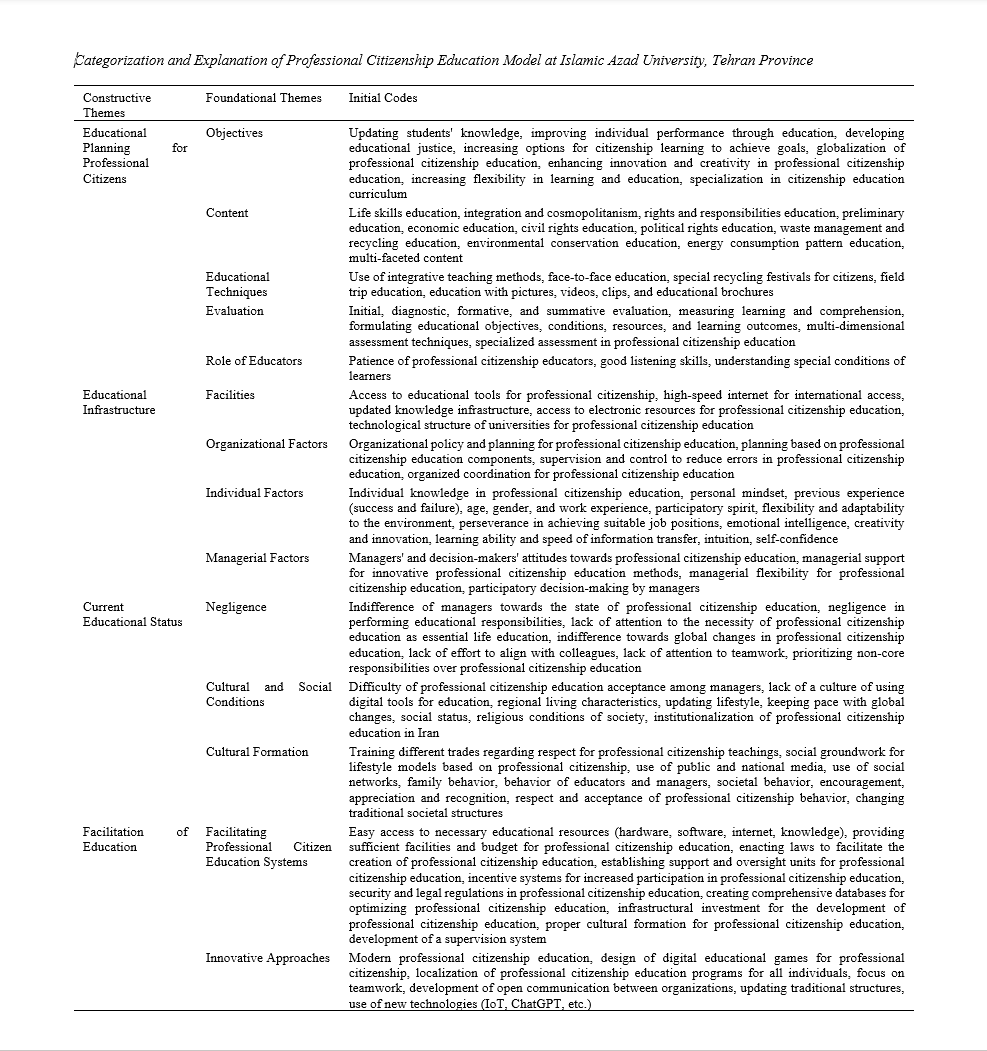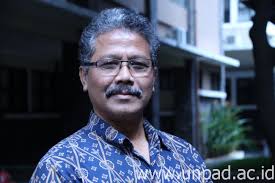Determining the Dimensions and Components of Professional Citizenship Education at Islamic Azad University, Tehran Province
Keywords:
Professional Citizenship Education, Educational Planning, Educational Infrastructure, Curriculum Development, Student Engagement, Educator Professional Development, Organizational SupportAbstract
Objective: This study aims to identify the dimensions and components necessary for effective professional citizenship education at Islamic Azad University, Tehran Province.
Methodology: This qualitative research employed semi-structured interviews to collect data from participants with significant experience and expertise in organizational management and university administration. The study utilized a purposive sampling method to select individuals with a minimum of a master’s degree, ten years of work experience in organizational management, and five years of university management experience. Data were analyzed using NVivo software to perform thematic analysis, which identified recurring themes and patterns. Theoretical saturation was achieved, ensuring that the key themes and concepts were thoroughly explored.
Findings: The analysis revealed six main constructive themes: Educational Planning for Professional Citizens, Educational Infrastructure, Current Educational Status, Facilitation of Education, Flourishing Professional Citizen Education, and Personal Growth. These themes encompassed 24 foundational themes and 164 initial codes. Key findings included the importance of updating curricula to cover comprehensive content, the need for adequate facilities and technological infrastructure, the critical role of educators' professional development, and the necessity of fostering a culture of active participation and collaboration. The study highlighted the multifaceted nature of professional citizenship education and the various dimensions necessary for its effective implementation.
Conclusion: This study provides a detailed framework for professional citizenship education, emphasizing the importance of educational planning, infrastructure, current educational status, facilitation, flourishing professional citizenship education, and personal growth. Implementing these components can enhance students' ability to navigate and contribute to their communities and the global society. The study recommends continuous professional development for educators, organizational support, and collaboration with governmental and non-governmental organizations to create a supportive environment for professional citizenship education.
Downloads

Downloads
Additional Files
Published
Submitted
Revised
Accepted
Issue
Section
License
Copyright (c) 2024 Maryam Molapour (Author); Hosseinali Jahed (Corresponding Author); Leila Saedi, Reza Sorani Yancheshme (Author)

This work is licensed under a Creative Commons Attribution-NonCommercial 4.0 International License.






















